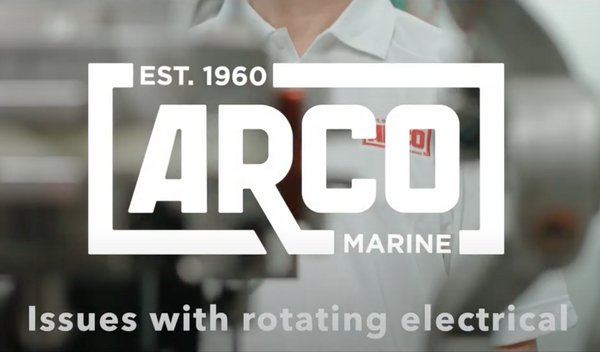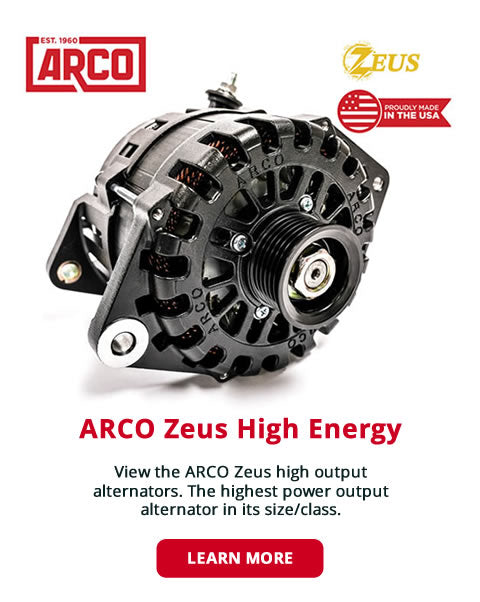
How to maintain your Rotating Electrical Marine Parts
Rotating Electrical Marine Part Maintenance
Rotating Electrical Marine Part Maintenance -
Inboard Starters:
Water in the Starter -
Getting water in the starter is the number one issue affecting inboard starters. This is mostly due to the starter being so low in the bilge. When there is any buildup of water in the bilge, it goes straight into the starter. From there, the flywheel will pick up the water, sling it into your starter, and cause harmful rusting. If rust is visible on the open end of the starter, you should know that the electrical parts inside the starter will be in a similar condition.
Water Ingestion -
Water ingestion into one or more cylinders causes what is commonly known as a "kickback". When the engine stops from a high RPM, everything stops that quickly, including your starter. Over time, this condition causes the bolts of the starter to stretch. That stretching in turn creates a wear pattern in the mounting pads. Once that has happened, the starter is moving ever so slightly every time you engage it. Over time, the pads will wear enough to allow the gear to pull away from the flywheel. This is why it is crucial to make sure there are no "kickbacks" on your engine.
Never Strike the Starter -
You should never strike the starter on the side to make it start. First, it will not work. Second, it can break the magnets inside the starter. The starter will need to be replaced once the magnets are broken.
See also our blog on Preventing Corrosion and Water Intrusion...
Rotating Electrical Marine Part Maintenance -
Outboard Starters:
Burnouts -
"Burnouts" happen when your starter has not had enough time to cool off and reset itself. For example, let's say bad gas has prevented your starter from starting the first time. No matter the reason, if you keep trying to fire the starter without giving it time to cool and reset itself, you will be overheating the starter. Hence, the term "burnout".
Kickbacks -
Kickbacks are caused by water intrusion into one or more of the cylinders or by timing issues. If your timing belt is a little slack and it has jumped time, it will "kickback". (See "Water Ingestion" Above)
Poor Wiring -
Poor wiring can be corroded wires, loose wires, or wires that are just really old. Electricity needs good strong wires to travel to your boats electrical parts. Always check your wiring first and always check the battery voltage (You may be interested in our Battery Care Tech Tip). Check the voltage at the battery and at the starter. If there is a noticeable change in voltage, there is likely some poor wiring or a loose connection that should be addressed.
Alternators -
First and foremost, alternators must turn at the proper RPM. To ensure this is the case, the first thing you want to check is that your alternator belt is tight. With the engine OFF, grab the front of the alternator fan. If you can turn it in any direction, the belt is not tight. Fixing that problem might just fix your alternator.
Alternators are not battery chargers. Do not expect your alternator to compensate for a battery with deficient power. Also, never disconnect the battery cable while the alternator is running. For some, this was once an "old trick". Unfortunately, the way alternators are built today, trying that trick even one time could destroy your alternator completely.
As a final piece of advice, please pay close attention to the instructions and diagrams that are provided with every new ARCO part!
You may be interested in our Tech Tips Landing Page or our YouTube Channel for other helpful Marine Replacement part videos and topics.

